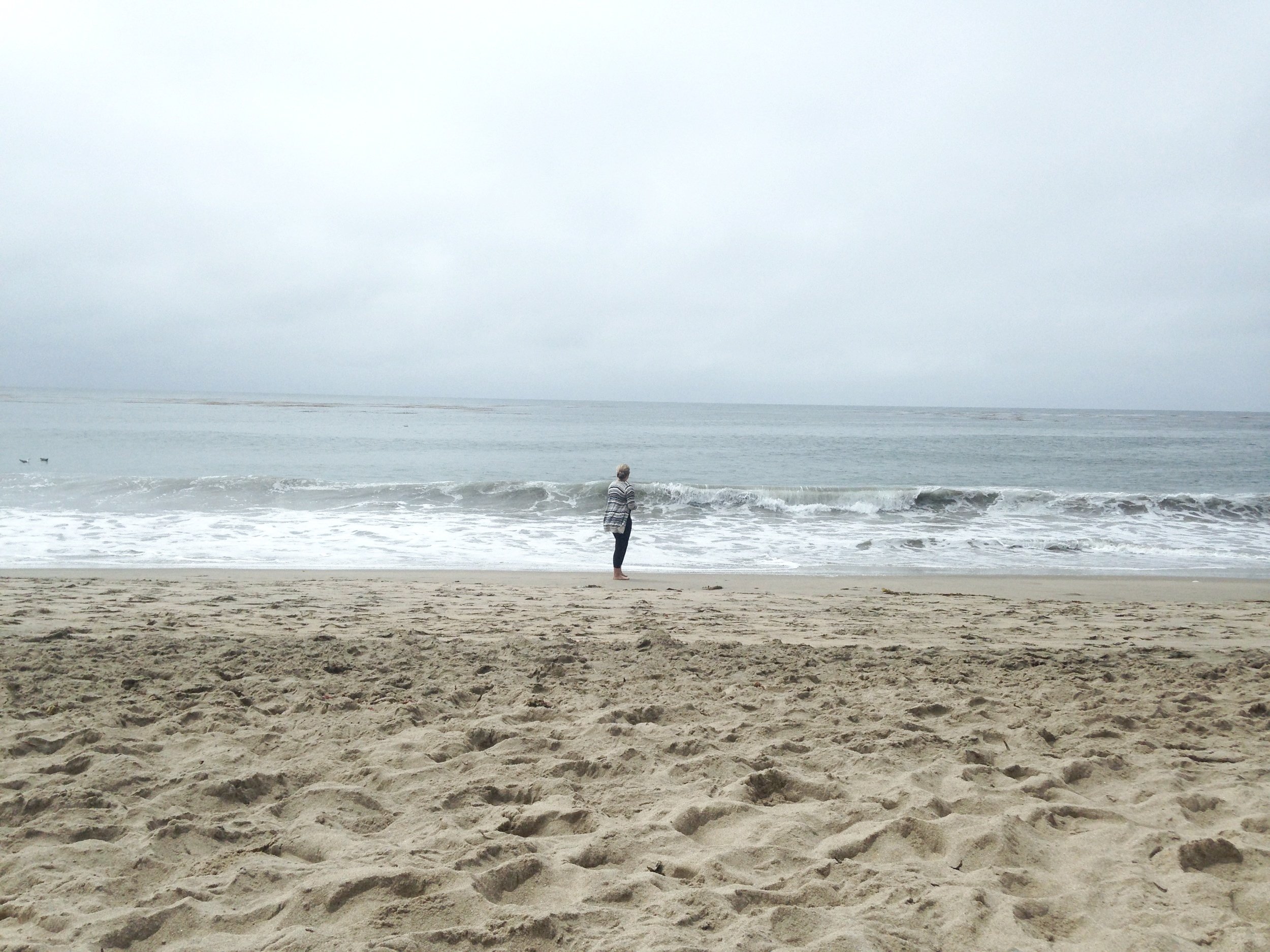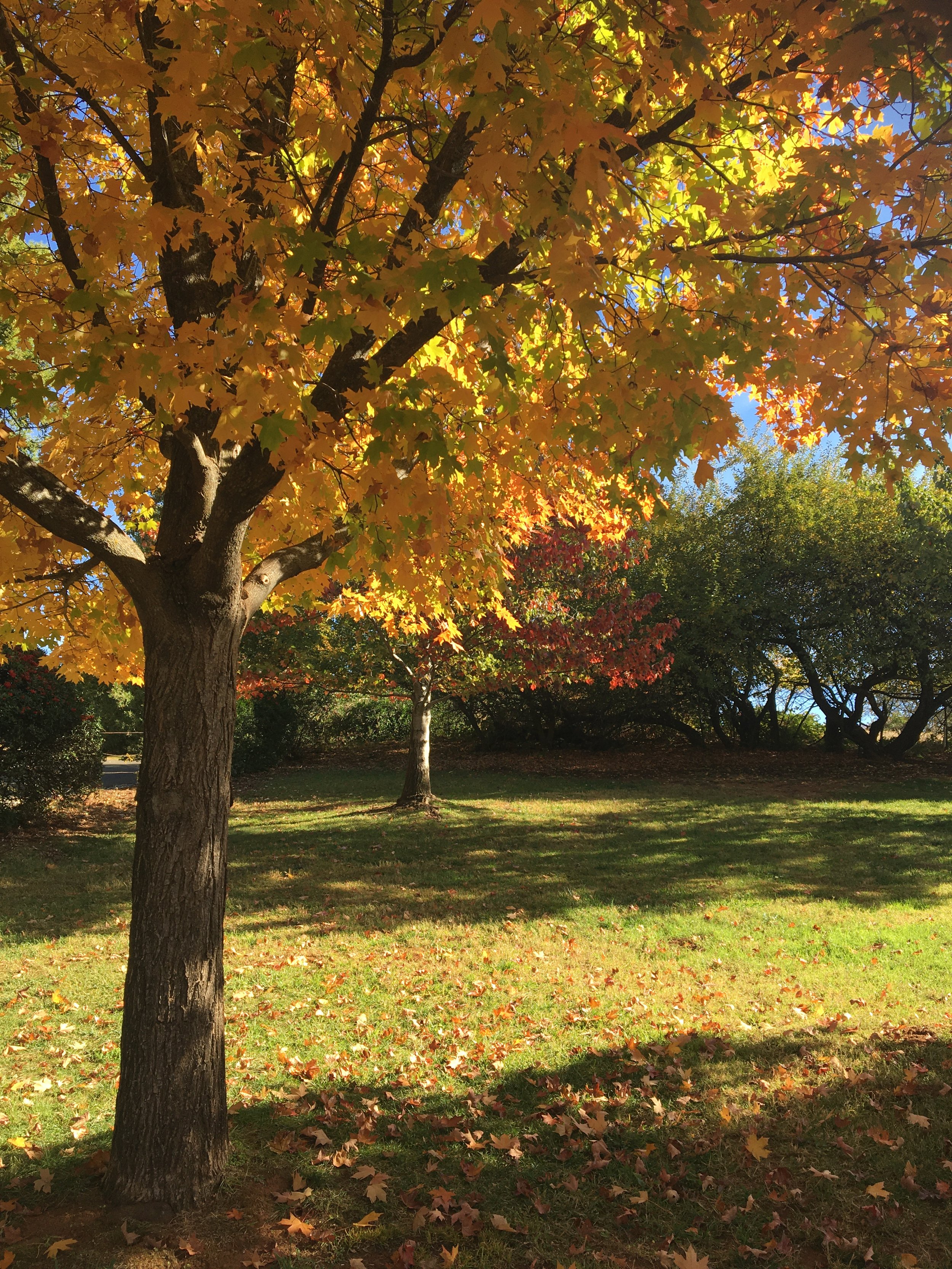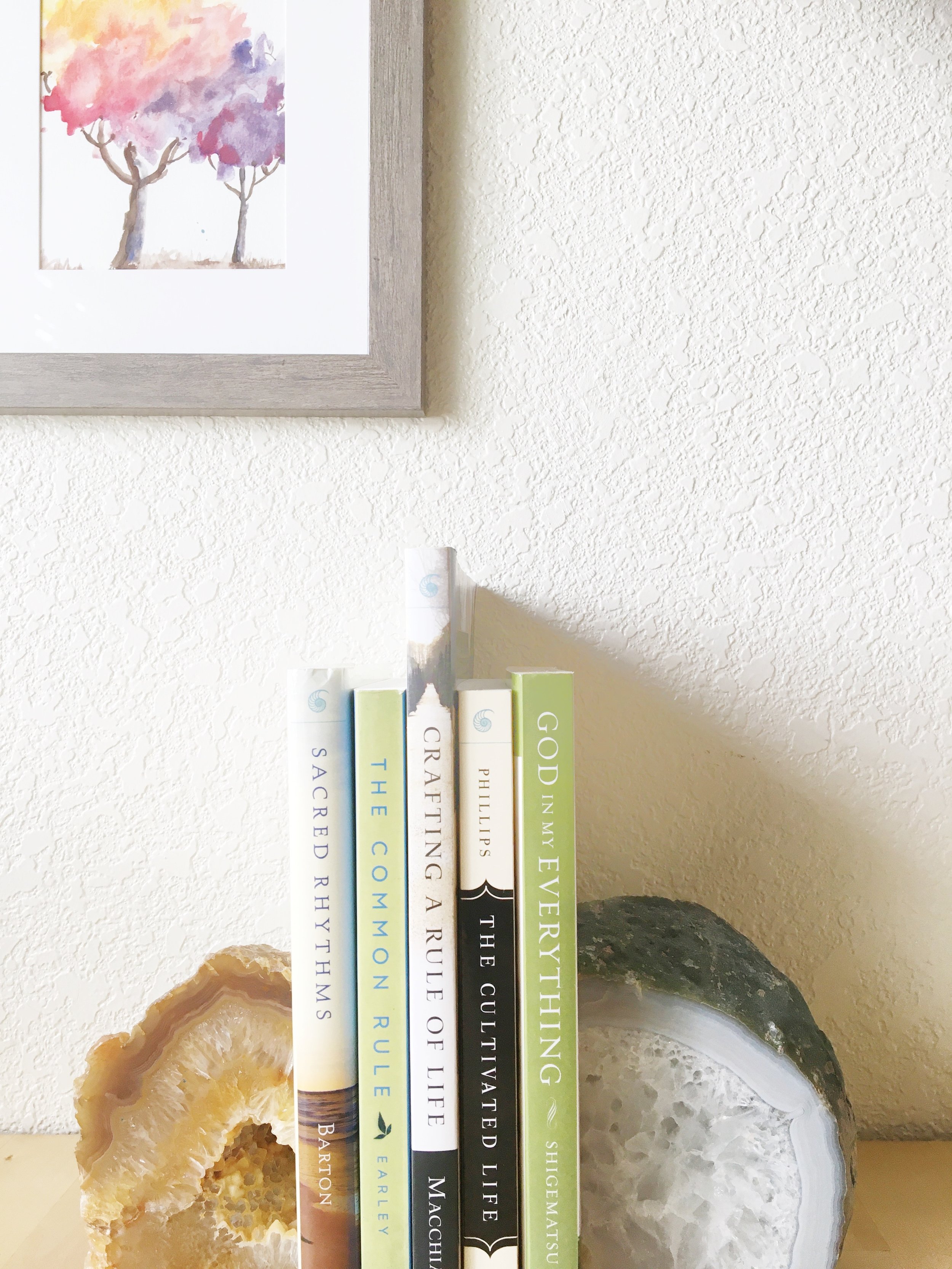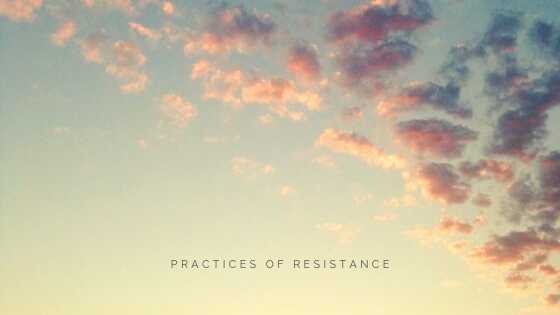
Retreat, Part 1: Why Getting Away is So Good for Your Soul
I love retreats.
As a former Young Life staffer, some of my favorite memories are from staff or leader retreats at Crooked Creek or Frontier Ranch, women’s retreats at Trail West Lodge, or from church women’s retreats I’ve been a part of over many years. Most of these retreats, though, are packed full of content, meetings, listening to speakers, lots of conversation, playing games, and squeezing in a nap in the afternoon, if I’m lucky.
What I really long for on retreat, though, is what Jesus invites his disciples into in Mark 6:30-32, right after they’d been sent out to do ministry (and just before the feeding of the 5,000):
“The apostles returned to Jesus from their ministry tour and told him all they had done and taught. Then Jesus said, ‘Let’s go off by ourselves to a quiet place and rest awhile.’ He said this because there were so many people coming and going that Jesus and his apostles didn’t even have time to eat. So they left by boat to a quiet place, where they could be alone.”
Right in the middle of their busy lives and work and to-do’s, Jesus invites them to come away and rest awhile, even as crowds are following them. He gives them permission to step away, to retreat from the soul-weary battles of ministry, and rest with him.

Silence and Solitude: A Practice to Try in the New Year
Truthfully, I used to think of silence and solitude as practices for refreshment, renewal, and getting away from people and set aside responsibilities. But they are not designed to make me feel rested. They’re designed to strip away all the distractions, let me see myself clearly, and allow me to hear the voice of God. Nouwen calls silence and solitude “the furnace of transformation” (The Way of the Heart, p. 13). Deliberately placing myself into a furnace sounds like the very opposite of restful.
But friends, I am in need of practicing silence and solitude myself right now. Desperately. (I think that’s the real reason why I’ve procrastinated writing this post…) I can feel in my soul a deep, deep longing to get away from noise, words, instagram posts, unsettling news stories, the world telling me what I should want and have and do. To instead be so satisfied with the quiet presence of God that words are unnecessary. There’s a quote from Spurgeon that has been playing in my head the last few days, in which he says that “contemplation, still worship, unuttered rapture, these are mine when my best jewels are before me. Brethren, rob not your heart of the deep sea joys; miss not the far-down life.”
Rob not our hearts of the deep sea joys.
Miss not the far-down life.
So, let’s plumb the depths and learn this far-down life together, shall we?

Praying Scripture: The Time-Tested Practice of Lectio Divina
The Psalmist declared to have hidden the word in his heart, and that it was “sweeter than honey” (Ps. 119:11, 103), and Paul encouraged us in Colossians 3:16 to “let the word of Christ dwell in you richly.” I’ve never found a practice of reading scripture that invites me to do the same quite like lectio divina!
I was first introduced to this ancient practice while on staff with Young Life, when Bob and Claudia Mitchell led us through it at a staff retreat a decade ago. Their love for the words of Scripture were only unmatched for their love for the God these words revealed, and I was captivated. I wanted to know the heart of Jesus the way that they did, and so began my journey with lectio divina.

How to Pray the Psalms
For some people, the Psalms are a part of scripture that have always felt like home, but for others, it takes a while to get into them. I was in the latter camp. The pathway to spiritual growth in the Psalms isn’t as clear-cut or pragmatic as places of didactic teaching, encouragement, or commands in other parts of scripture.
Donald Miller opened Blue Like Jazz with, “Sometimes you have to watch somebody love something before you can love it yourself. It is as if they are showing you the way” (pg. ix). This was my experience.

The Poetry of Praise
The Psalmist declared to have hidden the word in his heart, and that it was “sweeter than honey” (Ps. 119:11, 103), and Paul encouraged us in Colossians 3:16 to “let the word of Christ dwell in you richly.” I’ve never As I began to work on this post, I intended to write a very academic post about Psalms of praise—but I find I’m reflecting more on how the Psalms have taught me to worship. It’s easy to categorize the Psalms into individual and communal laments, individual and communal praises, etc, but truthfully, each psalm contains elements of both. Lament and praise go hand in hand. They are two sides of the same coin, in a kind of rhythm with one another, often experienced simultaneously, and they are both worshipful. They both bring glory to God.

The Earthiness and Wonder of Lament
Truthfully, this post has been in my thoughts for weeks, but the discipline to sit down and actually WRITE about lament has been lacking. I’d like to blame it on the recent power outages here in Northern California (we had FOUR of them, three of which were back-to-back, for a grand total of 9 days without power in the month of October!), or even the very busy season of life and ministry that we’re in this fall. But really, it’s because I’d rather remain distracted than acknowledge the need for lament, even in my own life. It’s so deeply personal, and all too real.
As a culture, we can be quite averse to lamenting. When someone expresses their sorrow or pain or doubt, we can be quick to offer cliche responses like, “Things will get better." "You’ll look back on this years from now and be grateful, because everything happens for a reason.” “God doesn’t give us more than we can handle.” (I literally cringed as I typed that last one.) Though co-lamenting seems the natural response, most often I give in to the temptation to circumvent or minimize it, as though I have to immediately come to the conclusion that God will somehow make something sweet out of bitter circumstances. I can have such a hard time sitting with another person in their pain that it’s no wonder I’d rather avoid or narcotize my own!

Psalm 1: Walking Trees
As we continue our series on the Psalms, we wanted to take some time to look at Psalm 1 together, which is believed to have been one of the last Psalms to be placed in the Psalter, strategically arranged to serve as an entry point into the rest of the Psalms. Psalm 1 invites us to ask two questions: “What are the Psalms here for?” and “How do we read them?” But more importantly, they ask some fundamental questions of us: “Who are we, and who are we becoming?” and “What is our vision of the good (or virtuous) life?”
Right here at the beginning, the psalmist presents two ways of becoming: the way of the righteous and the way of the wicked, “expressing with remarkable clarity the polarity of persons and their destinies” (Word Bible Commentary Old Testament: Psalms, “Psalm 1,” P.C. Craigie). Blessed is the one who walks in the way of the righteous, the psalmist declares. These are the people who will be like trees planted by streams of water and will yield good fruit, and whose way will be known by the Lord. He begins the psalm with a beatitude, similar to the beatitudes at the beginning of the sermon on the Mount in Matthew 5. The word for “blessed" can be more closely translated as “happy”: happy is the person who walks in the way of the righteous. In our day and age, happiness is a fleeting emotion, usually based on a particular experience.

The Psalms: Our Language of Prayer
Last week, hundreds of thousands of people were without power and electricity for several days across Northern California. It’s currently peak wildfire season, and in an effort to prevent power lines sparking during a windy few days, a major utility company made the difficult decision to cut power in our area. Honestly, it was difficult not to be frustrated during those couple of days — with all the throwing food out of the fridge (and thinking about local businesses who would lose so much money, or families who can’t afford to lose what food they have), stumbling around a dark house with headlamps and candles, showering at a friend’s house who was fortunate enough to have hot water, having to charge my phone in my car, and being without internet access.
You'd have thought that a lack of electricity would have been an encouragement to enjoy being unplugged and unhindered by the distraction of screens for a few days (especially after our recent post on Practices of Resistance!), but I mostly felt oddly disoriented and on edge. Being stuck in darkness for a few days had a disorienting effect on my mind, body, and spirit.
Walter Brueggeman writes about this idea of disorientation in his book Praying the Psalms. He suggests that our faith moves through three phases: “(a) being securely oriented; (b) being painfully disoriented; (c) being surprisingly reoriented” (p. 2). We long for the security of a sense of “equilibrium,” when things feel settled and normal—such as having full access to power, electricity, running water, and internet. While there are some Psalms that reflect this season of secure orientation, but a majority of the Psalms are laments, cries out to God when we experience disorientation.

Rule of Life Book recs
Five of our favorite resources to accompany you as you craft your own Rule of Life

Practices of Resistance: Making Space to Experience God’s Presence
As we continue along in our Rule of Life series and explore spiritual practices that we can integrate into our daily and weekly rhythms, I wanted to introduce a few practices that have been particularly meaningful for both of us in this season. These three practices are specifically geared towards helping us to discern how our use of technology affects our souls:
Turning our phones off for one hour every day.
Reading scripture before looking at our phones when we wake up.
Limiting media intake to a few hours a week.
All three are straight out of Justin Whitmel Earley’s The Common Rule, and he categorizes them as “practices of resistance” because they help us to become aware of how our habits are shaping and forming us, and how we can intentionally resist any habits or messages that are forming us into something other than the image of Christ. He writes,
"Our world is full of a thousand invisible habits of fear, anger, anxiety, and envy that we unconsciously and consciously adopt. Should we do nothing, we will be taught to love the very things that tear us apart. So we must take up the fight, open our eyes to the way media form us in fear and hate, the way screens form us in absence, and see the way excess and laziness train us to love ourselves above all else. But remember that resistance has a purpose: love. The habits of resistance aren’t supposed to shield you from the world but to turn you toward it. They aren’t so you can feel good about you’ve done for you. They exist so you can feel peace about what God has done for you” (The Common Rule, 25).
